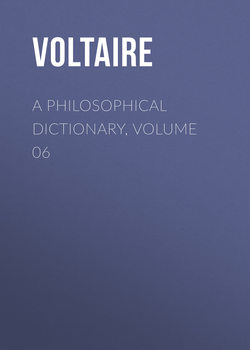Читать книгу A Philosophical Dictionary, Volume 06 - Voltaire, Вольтер - Страница 13
HISTORY
SECTION III
ОглавлениеOf the Certainty of History.
All certainty which does not consist in mathematical demonstration is nothing more than the highest probability; there is no other historical certainty.
When Marco Polo described the greatness and population of China, being the first, and for a time the only writer who had described them, he could not obtain credit. The Portuguese, who for ages afterwards had communication and commerce with that vast empire, began to render the description probable. It is now a matter of absolute certainty; of that certainty which arises from the unanimous deposition of a thousand witnesses or different nations, unopposed by the testimony of a single individual.
If merely two or three historians had described the adventure of King Charles XII. when he persisted in remaining in the territories of his benefactor, the sultan, in opposition to the orders of that monarch, and absolutely fought, with the few domestics that attended his person, against an army of janissaries and Tartars, I should have suspended my judgment about its truth; but, having spoken to many who actually witnessed the fact, and having never heard it called in question, I cannot possibly do otherwise than believe it; because, after all, although such conduct is neither wise nor common, there is nothing in it contradictory to the laws of nature, or the character of the hero.
That which is in opposition to the ordinary course of nature ought not to be believed, unless it is attested by persons evidently inspired by the divine mind, and whose inspiration, indeed, it is impossible to doubt. Hence we are justified in considering as a paradox the assertion made under the article on "Certainty," in the great "Encyclopædia," that we are as much bound to believe in the resuscitation of a dead man, if all Paris were to affirm it, as to believe all Paris when it states that we gained the battle of Fontenoy. It is clear that the evidence of all Paris to a thing improbable can never be equal to that evidence in favor of a probable one. These are the first principles of genuine logic. Such a dictionary as the one in question should be consecrated only to truth.
Uncertainty of History.
Periods of time are distinguished as fabulous and historical. But even in the historical times themselves it is necessary to distinguish truths from fables. I am not here speaking of fables, now universally admitted to be such. There is no question, for example, respecting the prodigies with which Livy has embellished, or rather defaced, his history. But with respect to events generally admitted, how many reasons exist for doubt!
Let it be recollected that the Roman republic was five hundred years without historians; that Livy himself deplores the loss of various public monuments or records, as almost all, he says, were destroyed in the burning of Rome: "Pleraque interiere
